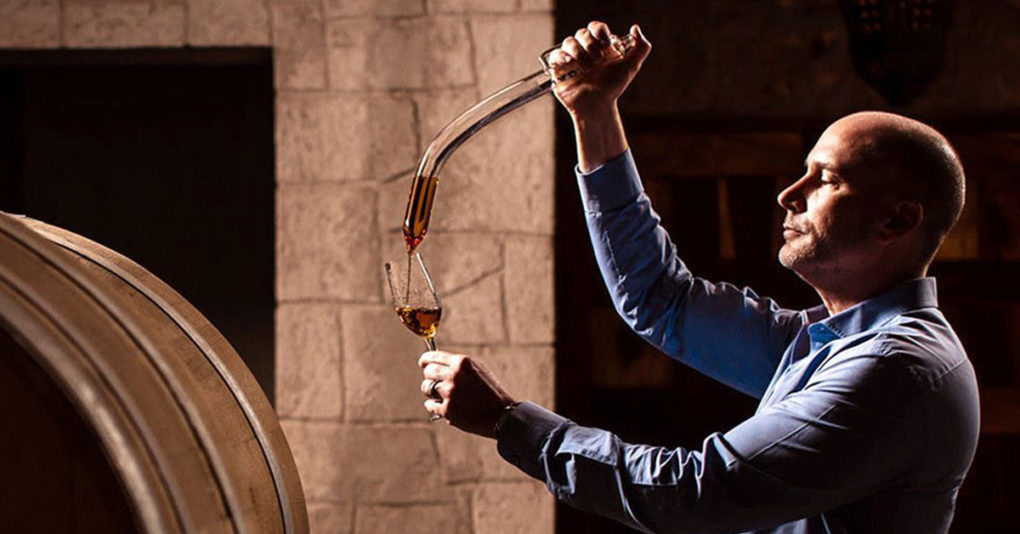
The brand was one of the first tequilas to achieve organic certification, and has built a wide range of expressions ranging from its under $50 blanco to its $1,000-plus extra añejo aged in Robert Mondavi wine barrels. It was also one of the first brands to recruit an A-lister: musician Carlos Santana became part-owner in 2011, but his stake was bought three years later when Constellation Brands acquired the company.
We chatted with Hermosillo about why innovation has anchored his business model, what beyond organic means, and how being part of the Constellation portfolio has changed the business.
How has the premium tequila business evolved since you started?
When I first started there was not as much emphasis on premium tequilas. Tequila was thought of as a “party-only” drink consumed via shots. Over the years the consumer landscape has had a complete transformation where mainstream tequilas are slowing down and premium and luxury tequilas are driving the highest growth.
Consumers have become much more conscious of the quality of tequila and its profiles. They have also focused their attention on tequila’s relationship to the environment and demanded more thoughtfully produced tequilas.
How much is innovation a part of your business model and how do new innovations and releases broaden the business?
Innovation is a key part of our business model, we see new innovations as an opportunity to further educate tequila consumers and allow us to broaden our brand visibility by sharing specially blended tequilas and super-aged tequilas with tequila lovers. Throughout the innovation process, we have introduced ways to improve our tequila-making.
From being the first to triple distill in pot stills which gave our tequila purity and great character, to our proprietary extraction system that intensifies the sweetness of our tequila. Together with the CRT [Tequila Regulatory Council], we developed a single-barrel tequila that uses new French Oak barrels for all of our aged expressions.
How did the acquisition by Constellation change your business?
The acquisition was wonderful, we have been able to grow Casa Noble’s distribution network and overall brand visibility over the last nine-plus years. We have also been able to create synergies where we can access even better and more interesting barrels, and we can guarantee our long-term quality agave supply through our partnership.
After several years it seems agave prices are going down: what’s the current state of agave prices and availability?
Agave is a plant that takes at least six to seven years to mature, and at Casa Noble we only use agave plants that are 10 to 12 years in maturity to make our tequila. Through time, price has been very cyclical as the balance of availability and demand has historically created lows to 0.80 pesos a kilo [$.004] to above peaks of 30-plus [$1.74].
The consumer demand in recent years for premium tequila elevated agave prices to record numbers never seen before, but this has started to stabilize as a high volume of planting occurred in the past seven years which has created an inventory of more than a billion agaves. Currently, prices have gone from 30+ pesos a kilo in the open market to around 16 pesos. The demand for tequila is still strong and with a healthy inventory of agave, it looks like a big future for the spirit.
What are the ways Casa Noble is sustainable?
For us at Casa Noble, it goes beyond the word “organic” when we think about responsible drinking and sustainability practices within the tequila industry. We remain committed to using 100% CCOF certified organic blue weber agave grown at the highest altitudes in Jalisco to make our tequila.
But we are constantly thinking and implementing ways to be better from a sustainability lens. For example, when we created our new packaging, we thought about our suppliers and the environment throughout the process and chose to create a bottle using lighter glass and recyclable materials to reduce our carbon footprint. From a production process standpoint, we proactively thought about how to achieve biodiversity by implementing planting practices to protect the soil for the future.
How do you see consumer demand shifting?
I don’t believe consumer demand for premium tequila is going away anytime soon and the combination of availability with quality will drive the spirit. We see consumer appreciation for tequila becoming more evident as a sipper every day. Something to watch out for is the market getting inundated with tequila options. Some brands are looking to cut corners within their tequila-making practices by using younger agave plants and adding additives like food coloring to try to create consistency within their aged tequilas and just looking for the fast path to getting rich.